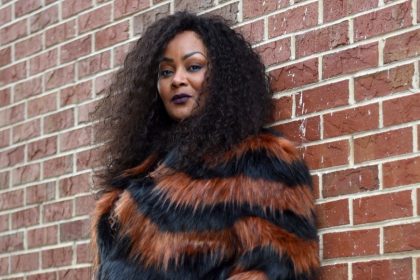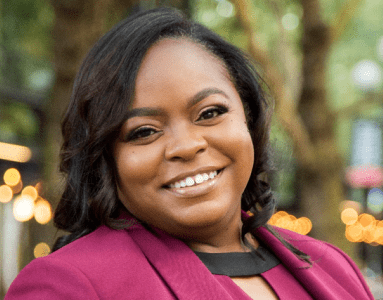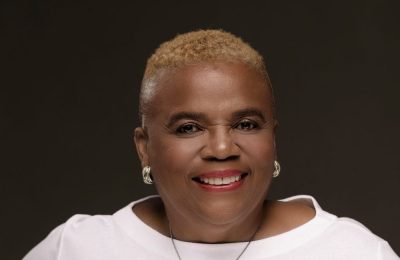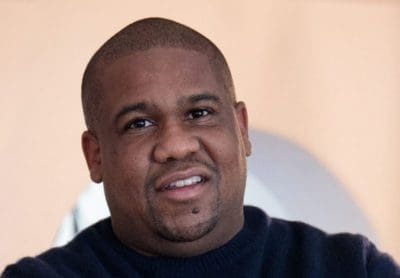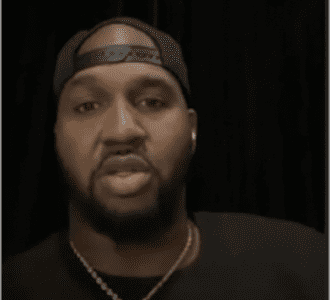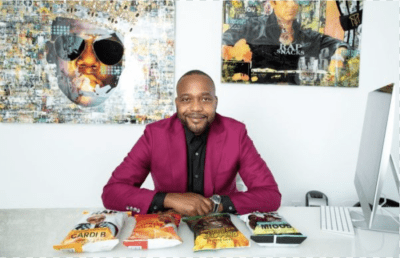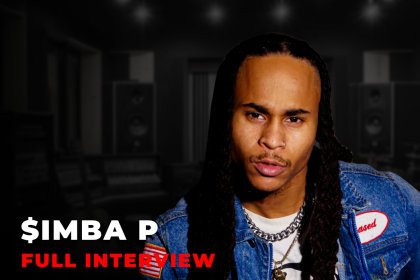Lita Cunningham is the CEO and founder of a new luxury skin care and wellness brand, LALAIS (luh-LAY), that launched exclusively with Bergdorf Goodman in late October 2023. Eight days later, one of the products, THE BLOTTING COMPACT, won Oprah’s Favorite Things 2023. LALAIS was noted by Forbes as “groundbreaking skincare” that found white space in the crowded beauty market as the first brand dedicated to oily and combination skin. LALAIS’ tight edit of high-performance products span skin care, vitamin supplements and a tool providing 360° solutions from the outside, inside, and instantly. Cunningham meticulously crafted each of the products from scratch, over four years, utilizing her HR background to work with some of the best in the business.
Before becoming an entrepreneur, Cunningham had a distinguished career as a senior human resources executive. She was a public company CHRO as SVP, Global Human Resources for Elizabeth Arden Inc. and also held senior HR positions at New Line Cinema, Time Inc. and GE Capital.
She is a graduate of the University of Virginia’s McIntire School of Commerce, as well as the University of Connecticut’s Executive MBA program. Lita is from Houston, but calls New York home and loves Pilates, restaurants and travel.
Her accomplishments attracted the attention of rolling out publisher Munson Steed who was eager to have her as a guest on CEO to CEO.
Munson Steed: Hey, everybody, this is Munson Steed and welcome to another edition of CEO to CEO. I have the pleasure today of interviewing a phenomenal woman who has shaped the vision of what we will see women wearing for years and decades to come. She has been insightful. She’s been an executive that can see the future, which is important for a CEO.
When I think of individuals who are making a pathway for today, and future generations of young men and women will want to be in retail, who want to be able to understand what the beauty business is all about, and what it is to be exquisite and special, I think of none other than Miss Cunningham from LALAIS. Welcome to CEO to CEO.
Lita Cunningham: Thank you. It was such a pleasure to be here.
MS: We set out a lot of confidence when you started, and we’re thinking of your name. Where were you? And what made you want to go into this beauty business, where, you know there aren’t a lot of Black women or Black women-owned products on the shelves.
LC: Yes. Well, I’ve always been a beauty junkie, particularly skin care, but I’ve always had temperamental skin, quite oily, breaking out, and what was most troublesome is really the dark marks that it left behind. I am more of a natural makeup person, so I really wanted to, you know, live without having to put on foundation and those sorts of things. And I’ve been on Accutane and steroids and had laser treatments and gotten burned and recovered and chemical burns, and all of that.
I ended up, I’m an HR professional by trade, and I ended up with the good fortune of working for a beauty company, and just loved the industry. I worked for Elizabeth Arden, and was very close with the marketing team, not in marketing. But once I left, I like to say that some magic happens when you have a few Martinis too many with your girlfriends, and they said you should create the brand that we always wanted.
And I said, I don’t know anything about that. And they said, “No, but you’re the type of person that would go and figure it out.” So that’s what I did. I did something crazy and really tried to solve the issues that I know myself and so many, you know, had been suffering through, and wanted to be able to streamline and simplify complicated skin.
MS: When you say complicated skin, and I think the beauty of this for anybody watching, a great CEO can solve a problem or seize an opportunity to solve a problem. What did you see when you say complicated skin, for those who are suffering and … for those who really were in your position, could have but didn’t take the plunge?
LALAIS ‘wasn’t an overnight thing’
LC: Yes. Well, we are the first luxury skin care for oily and combination skin. And you think of the beauty industry, and you think, “Oh my gosh, it’s so crowded and such a saturated market. But we are the first, because oily skin tends to have multiple things going on at the same time. And so, the big companies wanna market products to you to handle each of those individual things.
And I really wanted to say, you know, with all this technology, with all of this science, like, let’s really dive in and simplify that complicated skin in formulas that are high performance, gentle on the skin, appropriate for all skin tones, and that really address all of those things in, you know, one product. And so it took me four years, it wasn’t an overnight thing. These are bespoke formulas from scratch. That’s not how it works in the beauty industry, in the beauty industry 90% of the product is done. The companies go to contract manufacturers that’s already through testing. That’s already, you know, and they add a few ingredients and it’s a marketing story.
This is really from scratch because I wanted to solve a problem. And so, I worked with a globally renowned cosmetic chemist and spent nine months just learning about skin, because I wanted to understand why some of the things that I was using, whether it was $5 or $500, wasn’t working. And you know, it started with that and then I built the recipe and then went to a lab to make it. So It really is kind of doing it the old-fashioned way from scratch. And it’s my love letter, to the sort of skin that has been marketed as problem skin and my response is, it’s not problem skin, It’s just been misunderstood.
MS: You know, let’s back up, because you gave a whole a whole lot, and you condensed it quite eloquently. So, I see that part. But for those CEOs who really want to get on this journey, how do you stay motivated and want to learn? And why is it important for a CEO to want to learn versus just jump in, be reckless, just market versus learn and take your time? Because 4 years in most people’s minds, they can’t manage the transition of … happens. How did you transition over those four years?
LC: Yeah. I had, you know, some kind of life fortunes and changes going on at the same time. My company was acquired, and I had decided not to move on and knew that I wanted to do something different. I just didn’t know what it was, and I was honestly tired, and I needed to take a little time off to just refresh and you know, get my mind situated for what was next. And so, I was sitting now on a non-compete and exploring what I really wanted to do.
And recognize that not everybody has that, you know, has that situation where they can be paid quite frankly, and have the kind of time and space to explore some of that. That said, I think you’re the best at things that you experience, and you’re intimate about what you are solving. And you know, sometimes you get very frustrated because you see either a celebrity or you know these other things with big backings or venture capital, or you know, whatever the thing may be, kind of come to market and come fast. And you kinda have to, you know, stay your course and say, no, this is my thing.
This, you know, is my path, and this is what I’m trying to solve, and I think more and more as we go forward the consumer is telling us that they want goods that are differentiated, that solve their problems. And you know, the kind of one size fits all, I think more and more, we’re gonna see. A personalization of, you know, people, people prioritizing goods and services that really meet their specific needs.
So I think as a CEO, you know, really being clear about what your mission is, what you’re trying to solve, and you know, being the best and knowledgeable about all, all aspects of that. You know, when you’re dealing with someone’s face and being an HR, you know that when you meet somebody, you’ve already made an assessment on someone based on [an] 8 by 6 frame. You’ve made an assessment whether you want to admit it or not.
And so, when you’re formulating products that are really dealing with people’s face, I felt very, you know, very serious about that, and really wanting to make sure that they were top notch. And also, as a consumer for so many years, really wanting to make sure that they were products that worked for all sort of skin tones and backgrounds. When that hasn’t always been the case in terms of where we’re spending our dollars, that the companies are taking, that you know, that step to ensure that everybody’s gonna get, you know, the efficacy that they’re paying for.
LALAIS benefits from intimate knowledge
MS: You know, I, you mentioned intimate knowledge, and as a CEO, I think it’s very important for us to share. When you say intimate knowledge, and you were in a laboratory, and you were taking the time to understand recipes. How is intimate knowledge powerful? Once you’ve acquired it.
LC: Well, I think you know, there’s a difference between a specialty and a skill, and kind of intimate knowledge. And you know, I am a naturally curious person. Why? Why? Who does this? What does that? What’s gonna be the process? What should I expect? And I think as a CEO, and I’m a self-funded CEO. So you know, there’s a very practical, you know, reality for self-funded CEOs and entrepreneurs, that every single dollar you wanna know. What it’s being spent on and what you’re gonna get out of it.
And you know, when you’re formulating and there is no, you know, known outcome. You have to be a little agile, and you know, understanding that this is a process. But you want to understand what that process is going to be. What are my milestones? When you know, and you know, it was very important to me, and I think it’s important to entrepreneurs to know what the levers are that consumers are gonna be looking for. In high end luxury skincare, It really is about ingredients, technology, If people are spending that kind of money, they want to know what they’re getting for it.
And you know, so I really dug into what is the competitive set? What are the ingredients that they’re using? What are the ingredients that are out there? How are those ingredients gonna work? What is gonna be my test pool? That it’s not just the data sheets that are telling me what’s gonna work but let’s put it on some people and get their feedback. And so, part of the 4 years and doing bespoke formulas from scratch is a lot of trial and error, testing it. Do I like the way it feels? Do I like the results that I’m getting? What’s the, you know, what’s the user experience?
And so again, you know, it’s a difference in terms of quality, it’s a difference in terms of patience, it’s a financial difference in terms of the runway that you’re dealing with. But as a CEO, sometimes you have to know enough, to know, you know, what not to do, what path not to take or when you need more information and special, you know, specialization for someone to tell you what the right course of action may be. So, I think, you know, if you’re gonna dive into something and put you and your family’s money on the line. I think intimate knowledge is key to really, you know, kind of make sure your products are differentiated and make sure you know what you’re doing and talking about.
MS: I love that! When you move forward, you were talking about testing and obviously, I like the term TNL testing and learning the whole time. How did you test and learn as a CEO with data? How does that inform you and make you move forward or backwards?
LC: Yeah, I think it’s you know, it’s a balance of you know, and I’m not claiming to have done it right. But I think it’s a balance of, you know, what the data is telling you, and what the kind of understood processes are telling you, and then what your gut is telling you. And I think that’s when the kind of intimate knowledge and experience comes to play. Because if you’re solving a problem, or if your product or service does something that you are intimately aware, and it’s part of your lifestyle, and it’s, you’ve got people around you that experience the same thing.
You can tap into a network that will give you good, honest, objective feedback. You know, you already kind of have your test pool established. And you know there, sometimes you might deviate from what, you know, the data is telling you. But, you know, I think educated guesses are what a CEO has to be comfortable with, and ultimately, you know, your gut becomes a very very good barometer of, you know, if I’m not feeling quite right about this. What else do I need to to help me resolve this? And you know, I think that’s, you know, helpful.
I think CEOs, it’s not just reading the data and making that decision. CEOs have to be agile. And you know, taking subjective feedback and matching that with quantitative data. And you know, knowing when you know best, and knowing when you have to tap into the specialty of others. So, it’s a constant hat on hat off, and you know, change that even as an experienced executive was a challenge for me just the, you know, every minute and you know, particularly with the financial commitment that was at stake.
MS: You know, you did a phenomenal job, but you kind of made it sound so easy.
LC: [Laughs] You don’t see this bags and wrinkles?
MS: No, I don’t. I don’t see not one. I could see mine, but the beauty of the language model that you use for CEOs, who are listening. And you said self-funded, and that is often the case for people who obviously are of African descent. Literally, you were an executive. So clearly you have some idea of what wealth is, how to establish, da-da-da.
Now you get ready to say, well, is this a 10 x for the wealth that I have currently and how am I going to be responsible? What type of decisions, when you’re self-funded and having to think of the longevity, keeping and not moving so fast. And I think that you know, give some insight for those CEOs who are going to join you, in being self-funded, and some of the rationale that you apply in this journey to get it even to retail. Given that everybody will just say, just pull on a gas, just go.
‘Twice as much, twice as long’
LC: Well, it’s gonna take twice as much and twice as long as you anticipate, regardless of what the spreadsheet says, so that, just be prepared for that. And there is gonna be curveballs that as tightly as you manage, there are numerous things outside of your control that you have to cover. I would also say, you know, it’s launching and getting to launch, you know, as the entrepreneur, you’re just trying to get your product or service out there.
And then, you know, once it’s out there, you kind of think. Okay, my baby is born, and you know the world’s gonna come. You know, getting to launch is a monumental feat, but it’s just the first step. The things that happen after that are relentless. And so, you know, I think plan for, It’s gonna take twice as much money and twice as long as what you anticipate. And then what’s your you know, what’s your emergency money?
And I think, really having conversations to understand, again intimate knowledge of what the process is, finding manufacturers. Are they manufacturers that have worked with startup businesses before? What’s the, you know, famous word, MOQs, which is the minimum amount you can produce.
The contractor wants you to produce a very large amount. You don’t wanna do that. You wanna go in, in a measured way and try to build a relationship that says, I need to be small and measured upfront but let’s be in this together and build. And that isn’t in the contractors’ best interests, and so shopping around and understanding who your partners are gonna be and you know, kind of understanding what that strategy and what that model is.
D to C is a lot harder and a lot more expensive than it used to be. So you know, all of the heydays that put it up there, and you know, social is still an enormously valuable tool but more and more crowded and more and more difficult. So you know, it’s all about time and space and understanding your category and understanding the pool of people. And you know, but it’s gonna take twice as long and twice as much money as what you anticipate, and the launch is just the beginning.
MS: You know, CEO Cunningham, you so smooth with it. But let’s unpack cause clearly it’s a conversation, your manufacturer wants you to have a large, and if you would say what MOQ, queue, because most people don’t.
LC: Yeah. So MOQ is a minimum order quantity and anywhere you go, whether it’s a US-based manufacturer or a lot of stuff is manufactured in China, what have you? They will not turn on the machine to manufacture your product unless you commit to a certain number of it. And unfortunately, when you’re the small fish in a big pool, you have to fight to get, you know, the attention, you have to fight for your unit price, and people should understand that particularly when they go outside of the US, and the costs on the surface look like it’s gonna be.
Oh, my, gosh! A deal, a deal, a deal. What they don’t tell you is that to get it into the country, add 25% minimum onto that. The freight and shipping. Add another 15 to 20% on to that. And so it’s really, this is what I get to intimate knowledge, that you know, before you jump off the cliff. You gotta understand, who makes the parachute? What’s the material? What’s the backup plan? What’s the cord made out of? How does that work? Let me try and really dig into those things.
Because again, getting to launch, spending all of your budget. Now, you know, you’re ready to turn on shopify and get those orders. And I mean, that’s just, that’s just step one and you know, It’s a process. And you know, my mantra is gonna take twice as much money, and twice as long to do it in a quality way.
MS: You know. Lastly, because I really appreciate all that you’ve given in this CEO conversation, but many young men and women, who are going, and our “CEOs,” whether in training or watching another one. But obviously, all of those that are listening to you right now. Why should they negotiate? And why and how can you whisper some of the keys of what you’ve learned about negotiating and making sure you’re asking those hard questions of your suppliers versus just being business and letting people take your money without a negotiation?
LC: Well, I think, you know, I don’t want to repeat myself, but intimate knowledge, you know. Who? Where did you get the contact for that manufacturer from? Asking that manufacturer for references. Are they steeped in the category or products that you are manufacturing? Which means, that they’re doing something similar for other people and do you have insights into what they may, what they may be doing, or when that company started. And you know those sorts of things.
If you’re dealing with someone, you are offering them something. Listen, you do this, and this is the sort of audience that I open up to you. And then, you have the advantage of putting on your website. Oh, I’m in this category. Oh, I can cater to this sort of industry or this sort of audience. So you know the art of any negotiation is not just understanding your position, but the other person’s position. And how is it that you can help them see why doing business with you is to their advantage. And you know, that’s the difference between checkers and chess.
Yes, you can pound your fists on the table and say, you know, I want 10 cents less per unit, and you’re thinking about your you know, which is important, your bottom line, or whatever. But you know, it may be best to negotiate for them to ship to the US shore, because that’s 25% of your total order, which exceeds 10% per unit. So again, this is, you know, it’s you know, the art of negotiation is really understanding what all the elements are and how you can get what you want by letting the other person think they’re getting what they want for something for them.
MS: What is your superpower?
LC: What is my superpower? Well, I think I am. I have an enormous amount of drive, have an enormous amount of energy. I have a capacity to not sleep, which isn’t healthy or good. But you know my mantra is, I might not always be the smartest, but there’ll be no one that’ll out hustle me. I mean that just will not happen.
So, I have a kind of internal fortitude that you know, I think, as an entrepreneur has to keep you going. And I think you know, I’m a person that I know myself. I get very stimulated by, you know, kind of new and learning something different and you know, what have you? And you can take all those inputs in but you need to stay doggedly focused on, you know, what those milestones are that you have to get to to get to market, and then, you know, and then compete once you get to market.
We were very lucky that we launched with the most prestigious Department store in the world for sure in the US. Bergdorf Goodman. And are looking at expansion just at 3½ months old, my baby’s just 3½ months old. So, we launched in late April, we won, one of our products won Oprah’s favorite things, 8 days after we launched. And so, I was dealing as a new entrepreneur and a new CEO launching for products, launching in the best retailer in the US, winning Oprah’s favorite things in 8 days and kind of the eye of all that storm.
And you know, it was a lot, but it’s a blessing, and we’re kind of picking up those pieces. And now, just, you know, launching the business the traditional way. In terms of putting the brand out there, making sure we explain the brand and the products and all of the stuff that CEOs deal with. So, you know, I think just a high degree of energy and focus and fortitude is probably my superpower.
MS: Congratulations. I think everyone wish they could get on Oprah’s list, but we know you’re on her list. Thank you for coming to CEO to CEO. I really appreciate all that you’re doing. Luxury makeup, and beauty line, It’s incredible. LALAIS is there, ladies and gentlemen, get out and support it. I’m Munson Steed, the CEO. I’ve been hanging out with my dear sister, Lita Cunningham. Congratulations, Lita, for all that you’re doing, and thank you for coming on to CEO to CEO.
LC: Thank you so much. My pleasure.

